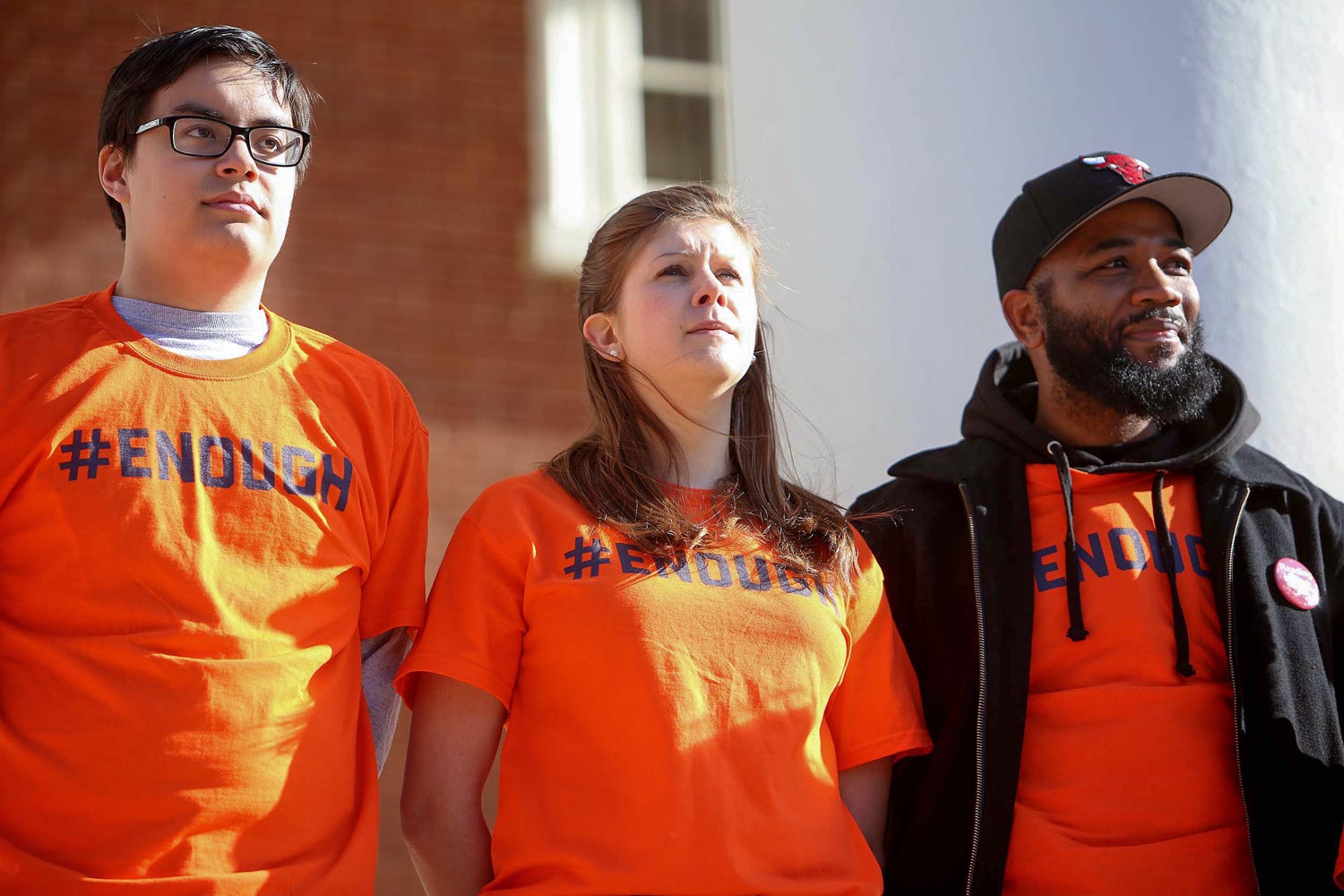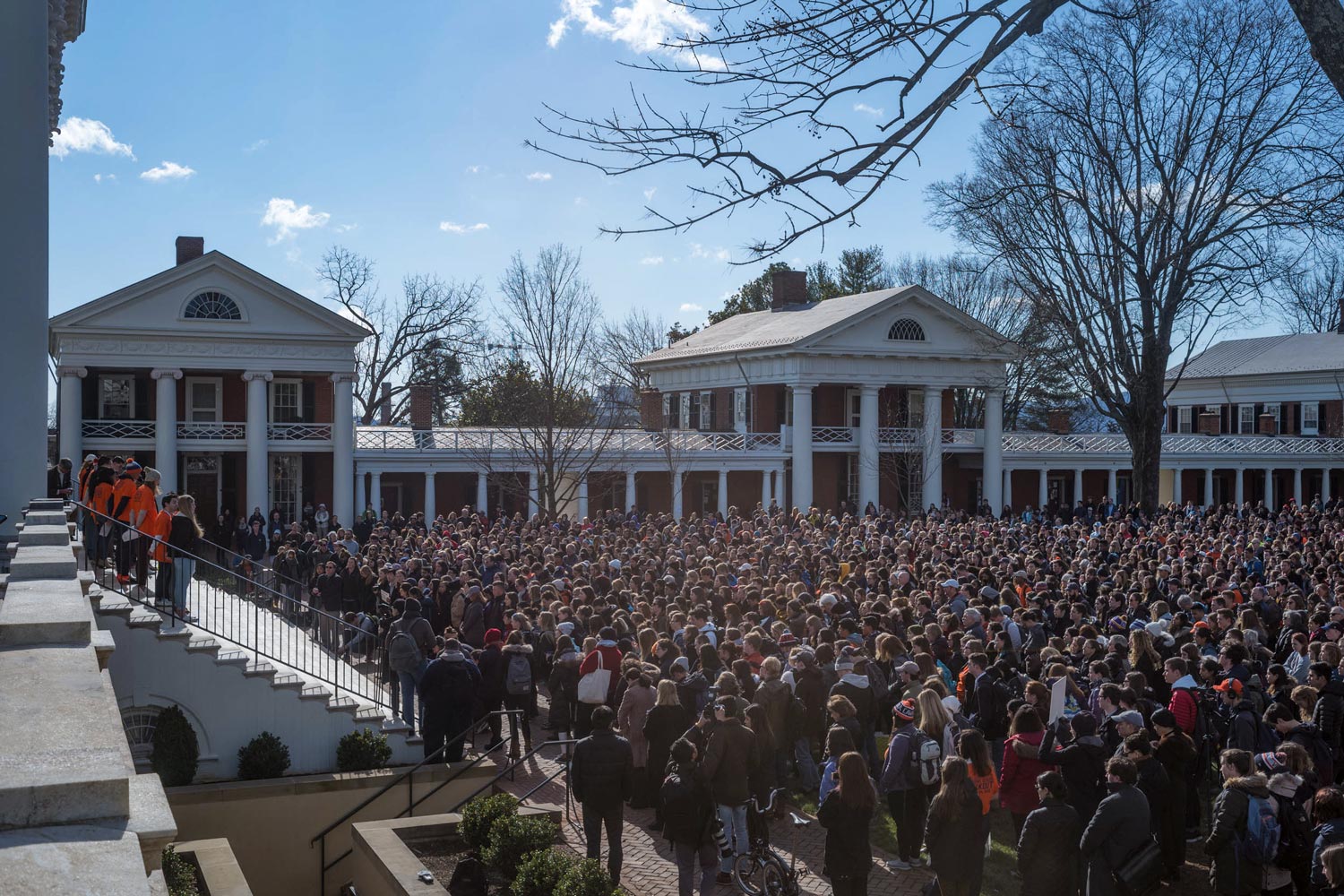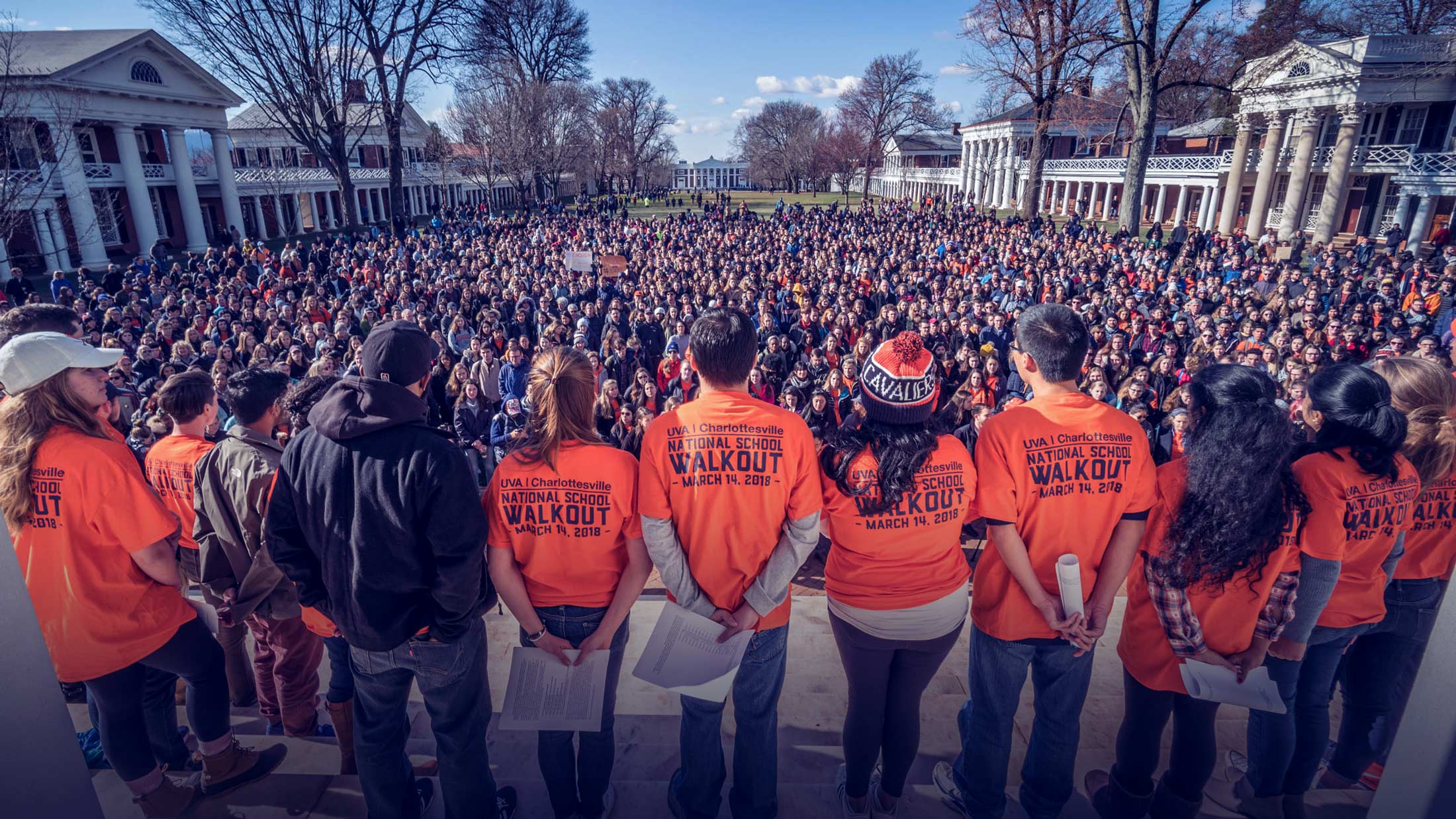It started in silence and ended in silence. Hundreds gathered on the University of Virginia’s Lawn at 10 a.m. on Wednesday to remember the 17 lives lost in the Parkland, Florida high school shooting and to call for an end to gun violence in schools.
One of thousands of planned protests across the country, UVA students, faculty, staff and members of the local community participated in the National School Walkout exactly one month after the deadly attack at Marjory Stoneman High School in Florida.
Facing the Lawn side of the Rotunda in the bright March cold, the crowd stood silently for several minutes as student leaders wearing orange T-shirts printed with “#ENOUGH” assembled on the Rotunda’s marble steps.
Student Council President Sarah Kenny broke the silence to read a statement. “We bring with us sorrow, anger, fear and confusion,” she called out to the solemn crowd.

Avery Gagne, a first-year Student Council representative; Student Council President Sarah Kenny; and music professor A.D. Carson stand on the Rotunda steps. (Photo by Richard Dizon, University Communications. Photo at top by Sanjay Suchak.)
“We must acknowledge these raw emotions and channel them into advocacy efforts to finally bring an end to the epidemic of violence that has taken far too many people from their families and communities,” she called.
Kenny then read a list of proposals and called upon local, state and national legislators to “get guns off the streets and make America’s communities, families and schools safe for us to learn, grown and live.”
The proposals included a call to lift restrictions on federal funding of gun violence and to create a new and improved assault weapons ban. After each proposal was voiced, the crowd responded loudly, “Enough is enough!”
UVA Professor of Hip Hop A.D. Carson read aloud “A Statement Concerning Concern,” his poem written from the perspective of an African-American whose death is not acknowledged by the media.
The names of all those killed in Florida were then read aloud, with the crowd chanting “We will remember!” after each name.
The demonstration closed with silence, save for the University Chapel bells tolling 17 times, once for each victim in Florida.
Afterward, Vanessa Moses, a third-year environmental thought and practice and African-American studies double-major from Melfa on Virginia’s Eastern Shore, said it was an important day.
“I felt like people needed to come together to make a statement and show politicians that we really need to change the legislation on gun control,” she said. “It shouldn’t be that easy to go to a gun show and get a gun on the spot.”
Fourth-year student Joshua Peters chose to stay away. “I think it’s inappropriate for Student Council to be combining a sympathy event for these victims with a politicized agenda in conjunction with this national march which has a very specific political agenda pushing for gun control,” said the commerce and computer science double-major.
“It’s terrible and horrific what happened,” he added. While deeply opposed to gun control, Peters said he wished there was a single event to mourn the dead.

Thousands came out, despite the windy, cold condition. (Photo by Dan Addison, University Communications)
Guian McKee, an associate professor of public policy with UVA’s Miller Center, is an expert in the relationship between public policy and larger social, economic and political movements in American history. He said people demonstrate because they feel their representatives in government are not perceiving their concerns or taking action to address the issues, as well as “to build support for their cause and to make people feel that they are not alone in having these concerns in feeling alienated.”
He said the anti-gun violence student protests are deeply rooted.
“Today, we have a movement led by students – heavily high school students, but also college students involved – who, at some level, live under the threat of school shootings,” he said.
The issue is particularly relevant for college students today because they have grown up in a post-Columbine world, referring the 1999 attack at Colorado’s Columbine High School. “They lived through Sandy Hook. This is a part of their lived experience,” McKee said.
Sustained engagement is crucial for movements to succeed, McKee said. “We saw effectiveness in the Civil Rights Movement over the long term, and with the anti-war movement in Vietnam,” McKee said. “We have to be careful in drawing simple causative relationships with the movement and the eventual end of U.S. involvement in the [Vietnam] war. It wasn’t one-to-one, but it did have an effect on placing pressure on the government on policymakers, that there was this powerful domestic opposition.
“I think when you look at the political alignment with the country today, it probably will require a very focused, sustained movement where people who support restrictions on guns have to be as politically organized and mobilized as the NRA’s supporters are, and it’s not necessarily something that is going to change because of the walkouts.”
Organizers of Wednesday’s demonstration said they are trying to maintain the momentum. Before and after the demonstration, students were invited inside the Rotunda to write to their representatives. And UVA’s Student Council is arranging carpools to take students to Washington, D.C. on March 24 for a national march against gun violence.
Media Contact
Article Information
March 14, 2018
/content/uva-students-community-join-national-walkout-protest-gun-violence

